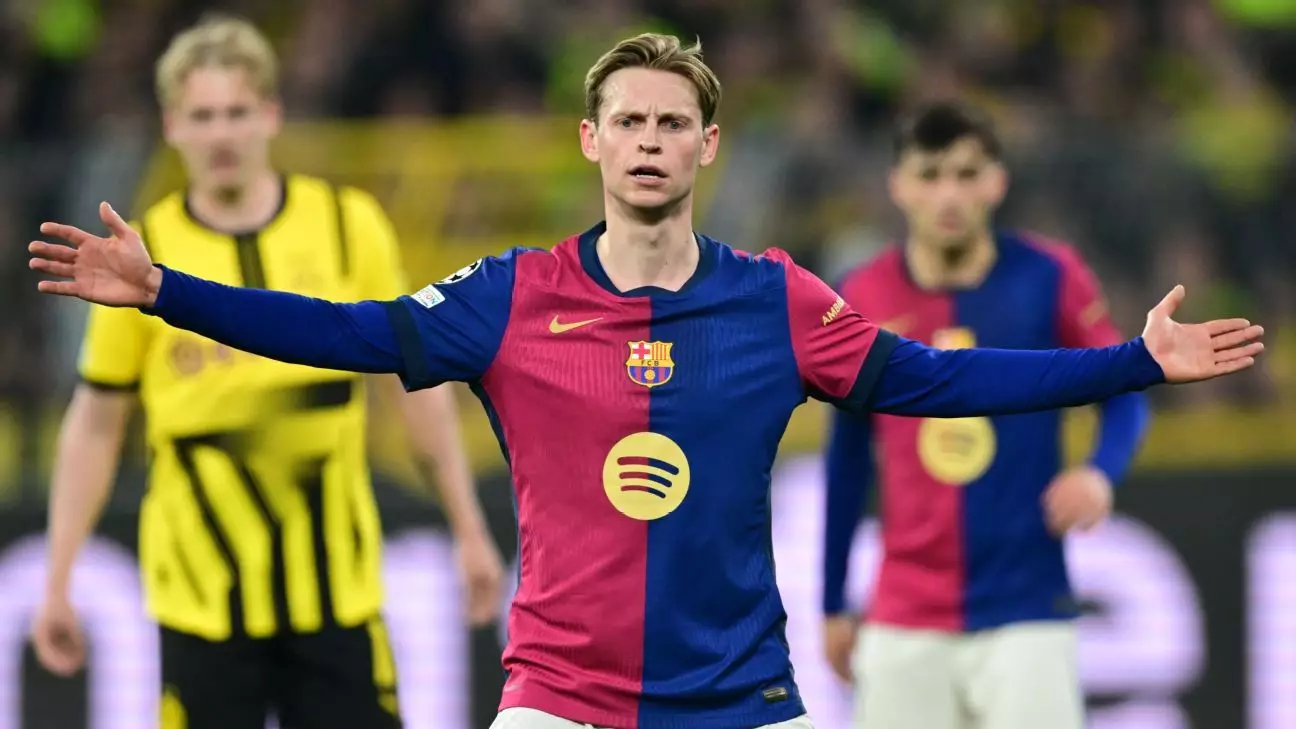Barcelona’s Resilience: Lessons from a Troubling Victory
There’s something so captivating about the highs and lows of sports, especially when it comes to a team as iconic as Barcelona. Their recent victory over Borussia Dortmund in the UEFA Champions League quarterfinals is a perfect example. Imagine the thrill of traveling fans from Catalonia, hearts full of hope, only to witness a 5-3 aggregate win that was anything but straightforward. Despite securing a spot in the semifinals for the first time since 2019, the mood among players was noticeably somber. It’s fascinating how such a significant achievement can be clouded by a distressing performance that echoes past challenges.
The journey to this point has been far from easy, and while fans celebrated reaching the semifinals, the players were left reflecting on their 3-1 loss in the second leg. Such moments remind us of Barcelona’s historical struggles against teams like AS Roma and Liverpool. Even with a 4-0 lead from their first match in Dortmund, the return fixture felt more like a warning than a triumph. It’s an intriguing psychological battle: how do you truly enjoy a victory when it’s tinged with vulnerability?
Key Takeaways
- Barcelona’s recent victory is overshadowed by inconsistent performances.
- The team’s identity crisis has become more apparent under pressure.
- Individual player performances have raised concerns about squad depth.
Searching for Identity Amid Chaos
The game against Dortmund revealed some cracks in Barcelona’s armor that are hard to ignore. Unlike the cohesive unit of years past, this team seems to be struggling with its identity and consistency. As they prepare for upcoming challenges like facing Real Madrid in the Copa del Rey final and advancing in the Champions League, stability becomes crucial. Coach Hansi Flick noted this shift in team morale, which was evident despite their progression to the next stage. Sometimes mere advancement isn’t enough to lift spirits when underlying issues persist.
This young Barcelona team is under immense pressure due to high expectations, which can be daunting. The rise of star players such as Serhou Guirassy should serve as motivation, yet it also highlights the necessity for strategic adjustments. Historically known for their high standards, Barcelona must address lapses that could lead to self-doubt and anxiety. It’s not just about winning; it’s about winning with confidence and style, which seems to be missing at times.
The Players: An Unsatisfactory Reflection
Individual performances during the Dortmund match left much to be desired and have been a topic of discussion ever since. Key figures like Raphinha, Jules Koundé, and Wojciech Szczęsny showed inconsistency that surprised even their most loyal supporters. Reclaiming European supremacy demands not just wins but also performances that reinforce team confidence. What should have been a showcase of footballing excellence turned into a chaotic display that nearly ended disastrously.
Mistakes in defense, poor decisions, and visible fatigue weren’t just isolated incidents—they’re symptoms of a team still finding its footing. The absence of key players like Alejandro Balde and questionable substitute choices highlight issues within team depth and preparation. Success requires each player to contribute towards building synergy and resilience; it’s about everyone pulling together to form a cohesive unit capable of facing any adversary.
The Turning Point: What Lies Ahead
While Tuesday’s win propels Barcelona into Europe’s elite club tournament’s penultimate stage, their method raises important questions. Is this the beginning of a return to glory or merely an anomaly? The path to success is rarely straightforward, and the psychological scars from Dortmund must transform into valuable lessons quickly. Coach Flick is tasked with not just analyzing past games but also mapping out the season’s trajectory.
The formidable nature of upcoming opponents calls for evolution in both playing style and mental approach. A positive mindset is critical, but so is facing uncomfortable truths head-on. The team must harness its talents effectively because lofty expectations can become burdens if not managed properly. The struggle between triumph and vulnerability defines where Barcelona stands today—it’s up to them to address these challenges head-on.
Final Thoughts
This latest showing illustrates that Barcelona is on a complex journey where achievements and struggles coexist. They must confront vulnerabilities openly if they are to strengthen moving forward. Now is the time for reflection and adjustment—only through diligent effort can disappointment turn into enduring success. What lies ahead will test their resolve and adaptability; however, embracing these challenges might just pave the way for renewed dynamism.
Barcelona
UEFA Champions League
football analysis
sports psychology


Leave a Reply